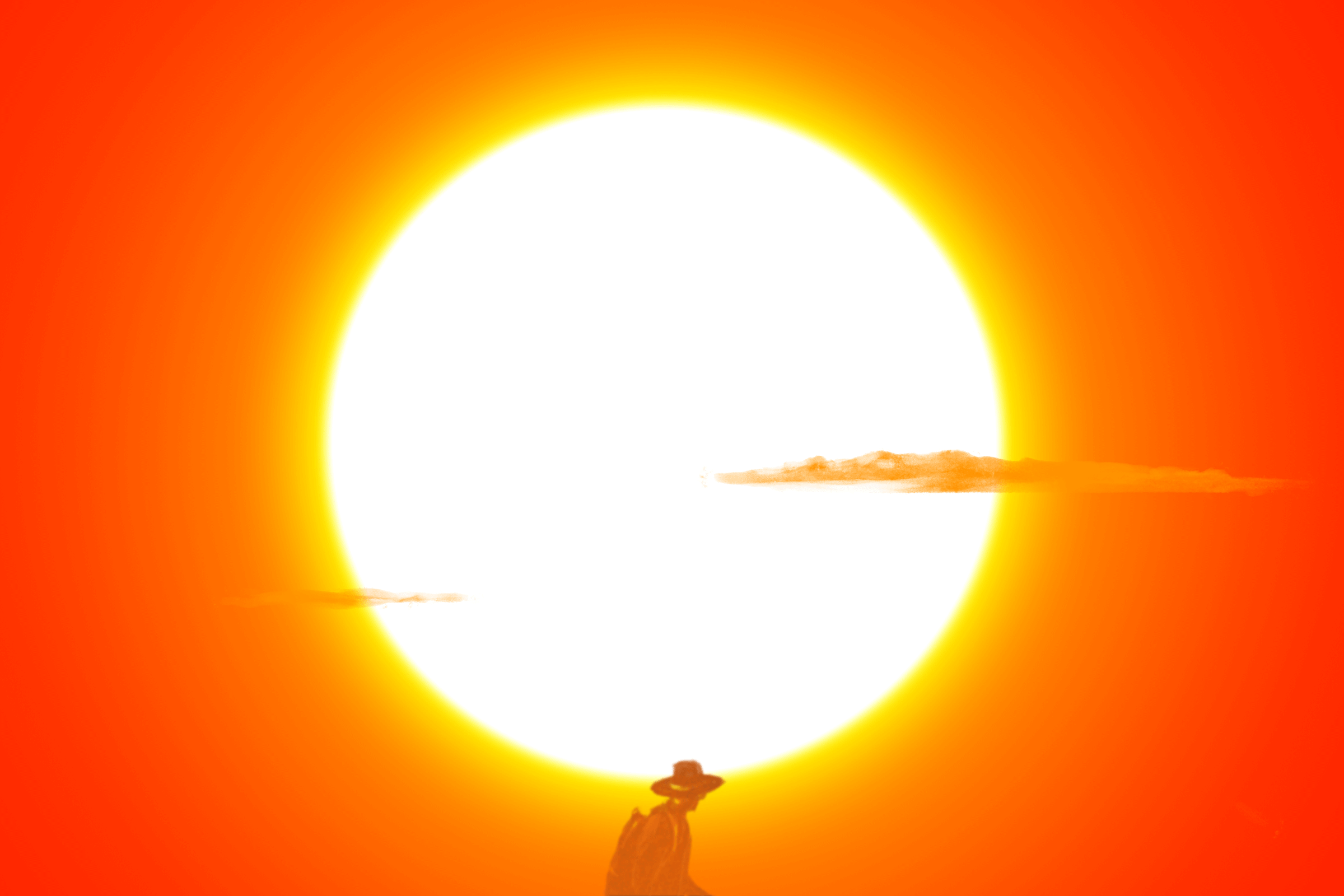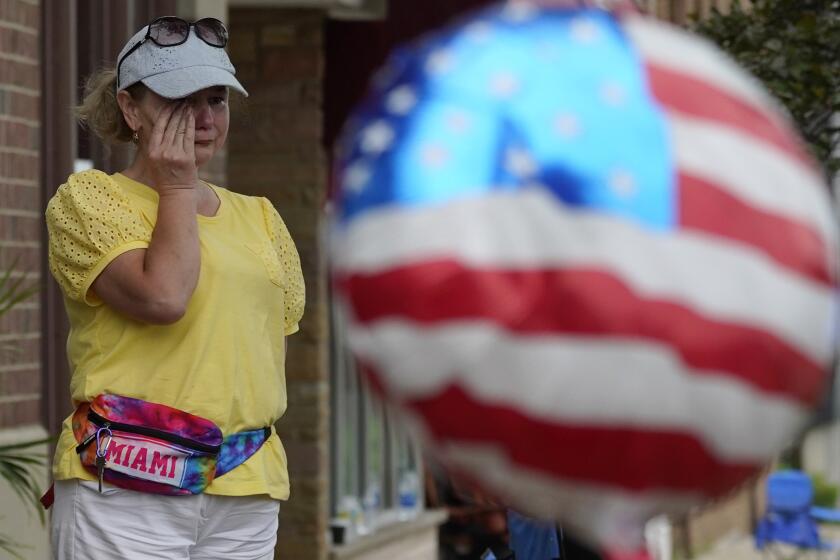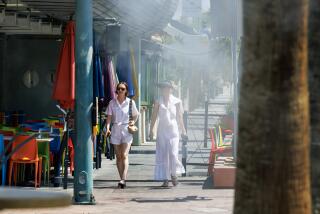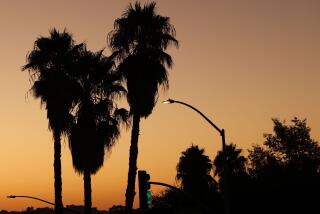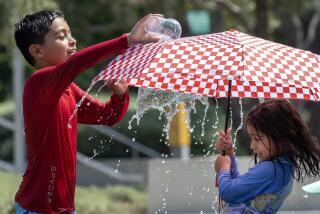Motorcycle tour of Death Valley turns fatal as thermometer cracks 128 degrees
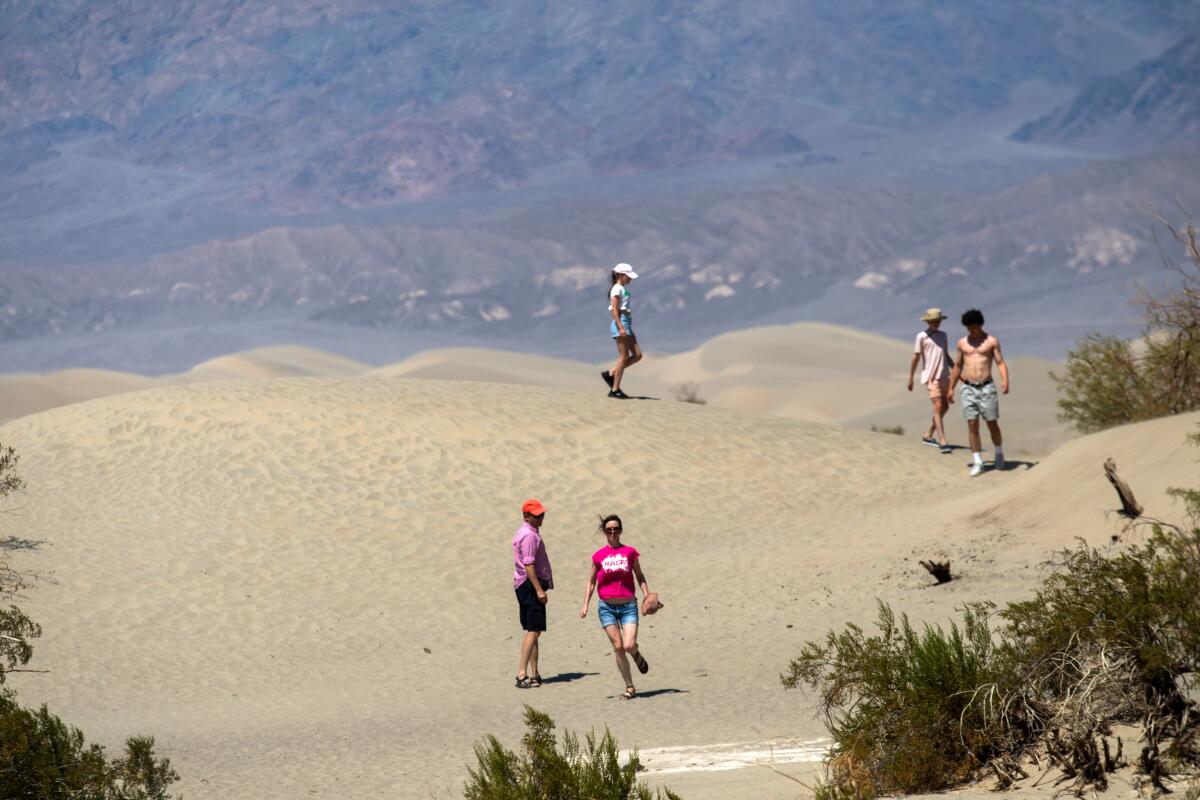
- Share via
As the temperature climbed Saturday to a record 128 degrees Fahrenheit in Death Valley National Park, a group of motorcyclists became distressed by the extreme heat, and one of them died, a park ranger said.
The motorcyclists were touring the park near Badwater Basin, a stretch of salt flats that is also the lowest point in North America, when — in the mid- to late afternoon — they reported being affected by the extreme heat, according to park ranger Nichole Andler.
One of the riders was pronounced dead at the site, and another person with severe heat illness was taken to Las Vegas, Andler said. Four others in the group were treated and released.
The name of the deceased motorcyclist, or other identifying information, was not released, and the specific cause of death will be determined by the coroner, Andler said.
“Yesterday it was 128 degrees, which was a record high for that day in Death Valley,” the ranger noted, “and these folks were traveling through on motorcycles, and most likely they didn’t have adequate cooling.”
The heat also hindered the rescue effort. When temperatures exceed 120 degrees Fahrenheit, a medical helicopter cannot access the park. Air expands when it is heated, becoming thinner than cold air. So, helicopters can’t get the lift needed to fly.
But Andler said that, in addition to park rangers, first responders from Inyo County and nearby Pahrump, Nev., assisted the bikers.
A visit to Death Valley National Park has profound consequences for a veteran of extreme temperature. “I thought I knew heat.”
Saturday’s temperature was just shy of the all-time heat record in Death Valley — 134 degrees, which was set on July 10, 1913. Since record-keeping began in 1911, temperatures have reached or exceeded 130 degrees only three times — with two of those times since 2020: Aug. 16, 2020, and again on July 9, 2021.
Each year, at least one to three people die of heat-related illnesses while visiting the park, and each week, there are one to three calls for medical assistance for heat-related stress.
“Folks get excited about experiencing the warmest temperatures that they’ve ever experienced before, and sometimes they forget that if an hour ago they were hot and started to feel nauseous, then they need to spend the rest of the day in air conditioning — because that could be the earliest sign of heat illness,” Andler said. “If you warm up and never properly cool down, your body doesn’t get a chance to reset.”
Elsewhere in Southern California, the heat shattered records and broiled communities.
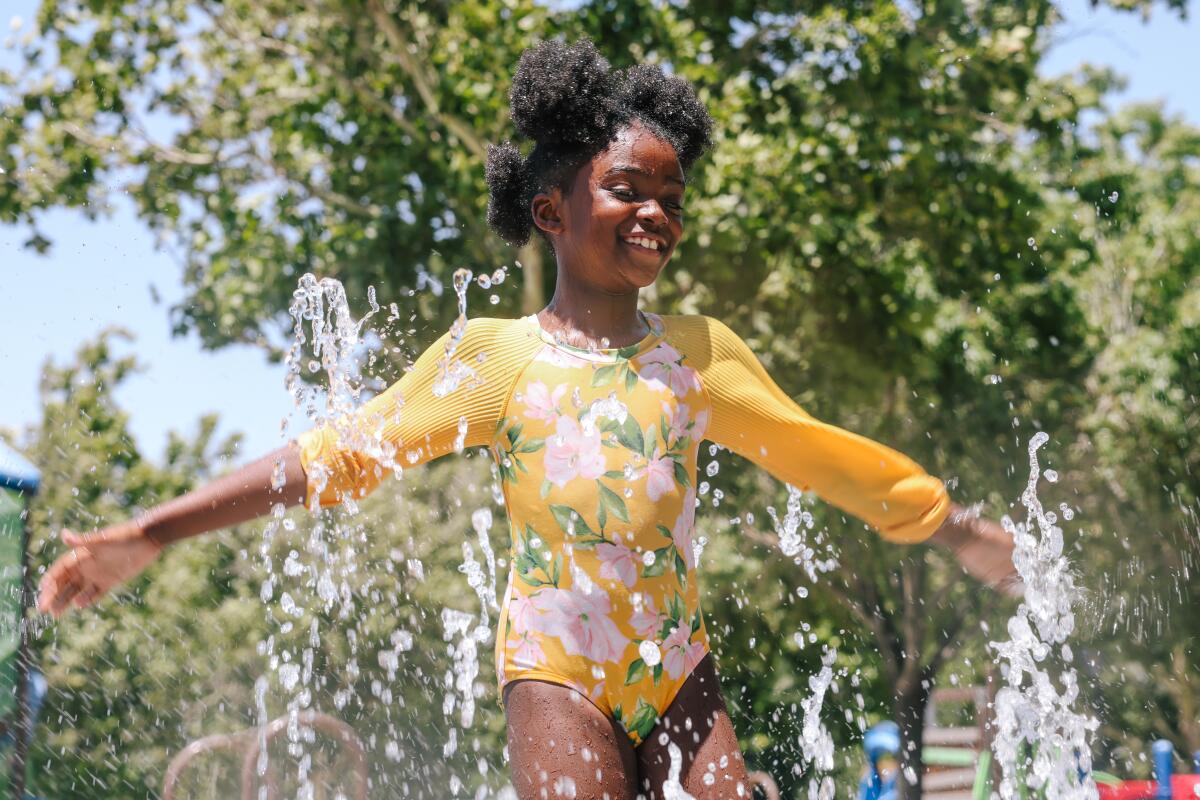
On Sunday, Palmdale and Lancaster each set record highs for that date — with Palmdale seeing a 114-degree high, exceeding the record of 110 set in 1989. In Lancaster, the 115 degrees recorded Sunday topped the record of 110 reported in 1989 and 2017.
The National Weather Service said that extreme heat would continue this week across the Southland, with highs of 105 to 115 in the interior valleys, mountains and deserts.
Violence and mass shootings often surge in summer, especially around the Fourth of July, historically one of the deadliest days of the year. Here’s why.
The excessive-heat warning was extended to 9 p.m. Thursday for the western San Gabriel Mountains, the Antelope Valley, Angeles Crest Highway and the corridors of the 5 and 14 freeways.
Another excessive-heat warning was in place until Wednesday for the Santa Clarita Valley, Santa Monica Mountains, Calabasas, the San Fernando Valley and eastern San Gabriel Mountains — regions where temperatures were forecast to exceed 100 degrees, according to the weather service.
More to Read
Sign up for Essential California
The most important California stories and recommendations in your inbox every morning.
You may occasionally receive promotional content from the Los Angeles Times.
